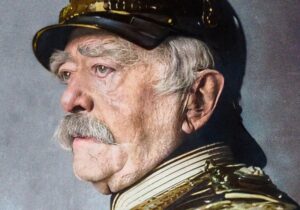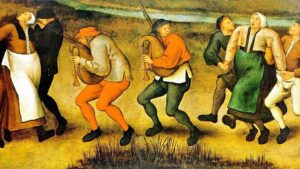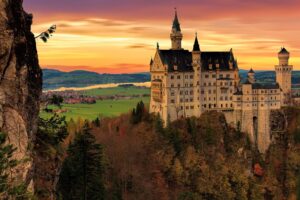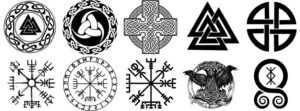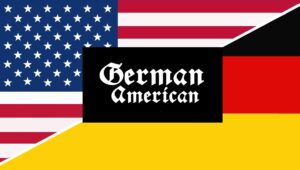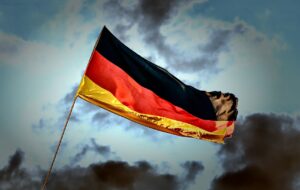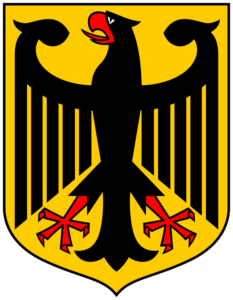Imagine a single man so powerful and cunning that he could bend the fate of an entire continent. A political chessmaster who engineered wars, shaped ideologies, and unified a fragmented collection of states into a global powerhouse—all while wearing a spiked helmet. That man was Otto von Bismarck, the “Iron Chancellor,” and his story is as … [Read more...]
The German Witch Hunts: A Dark Chapter in European History
Imagine a time when a suspicious glance or a failed harvest could land you on trial for witchcraft—complete with pitchfork-wielding neighbors and a one-way ticket to the stake. Welcome to The German Witch Hunts: A Dark Chapter of European History. Between the 15th and 18th centuries, Germany became the epicenter of a witch-hunting frenzy that … [Read more...]
The Dark Side of German History: Strange and Unusual Events
Germany’s history is full of invention, philosophy, and cultural brilliance—but beneath that polished surface lies a strange and eerie past. From bizarre medieval justice systems to mysterious disappearances and unexplained phenomena, Germany has seen its share of bizarre and unsettling events. While most history books focus on wars and … [Read more...]
The History of German Castles: From Medieval Fortresses to Fairytale Palaces
Germany is home to some of the most breathtaking castles in the world, each one steeped in history, myth, and grandeur. From the imposing medieval fortresses that once housed knights and lords to the whimsical, dreamlike palaces that inspired fairy tales, German castles are a testament to the country’s rich and complex past. These architectural … [Read more...]
Germany’s Pagan Past: How Ancient Germanic Tribes Lived and Worshipped
Before Germany became the land of castles, beer halls, and high-speed highways, it was a vast wilderness ruled by fierce Germanic tribes who lived in harmony with nature and worshipped powerful gods. Long before Christianity took root, these ancient peoples had their own beliefs, rituals, and way of life—one deeply connected to the forests, rivers, … [Read more...]
The Underground Cities of Germany: Bunkers, Tunnels, and Hidden Secrets
Beneath the charming cobblestone streets of Germany lies a hidden world—one of underground bunkers, secret tunnels, and forgotten subterranean cities. While tourists flock to iconic landmarks like Neuschwanstein Castle or Brandenburg Gate, few realize that an entire network of history runs beneath their feet. From wartime bunkers to medieval escape … [Read more...]
The Influence of German Culture on American Traditions
German culture has left an indelible mark on the United States, shaping everything from food and festivals to language and education. With over 40 million Americans claiming German ancestry, it is no surprise that many aspects of American life have been influenced by German traditions. Whether it is the beloved holiday customs, iconic food staples, … [Read more...]
Lost German Kingdoms: Forgotten States and Their Cultural Influence
Germany, as we know it today, is a product of centuries of political fragmentation, shifting borders, and unification efforts. Before Germany became a single nation-state in 1871, it was home to numerous kingdoms, duchies, principalities, and free cities. While some of these states merged into modern Germany, their cultural influence still lingers … [Read more...]
The History and Meaning of German Coat of Arms and National Symbols
Germany’s national symbols and coat of arms carry deep historical significance, reflecting centuries of political, cultural, and social evolution. From the majestic Black Eagle to the striking colors of the German flag, these symbols have undergone transformations while maintaining their national identity. In this article, we will explore the … [Read more...]
The History of the Autobahn: From Bismarck to the Bundesautobahn
The Autobahn is not just a network of highways but a historical artifact that reflects Germany’s past from the industrial age to modern times. This article traces the evolution of the Autobahn, debunking common myths about its origins and highlighting key historical milestones that contributed to its current status as an icon of automotive freedom … [Read more...]
- 1
- 2
- 3
- …
- 13
- Next Page »
